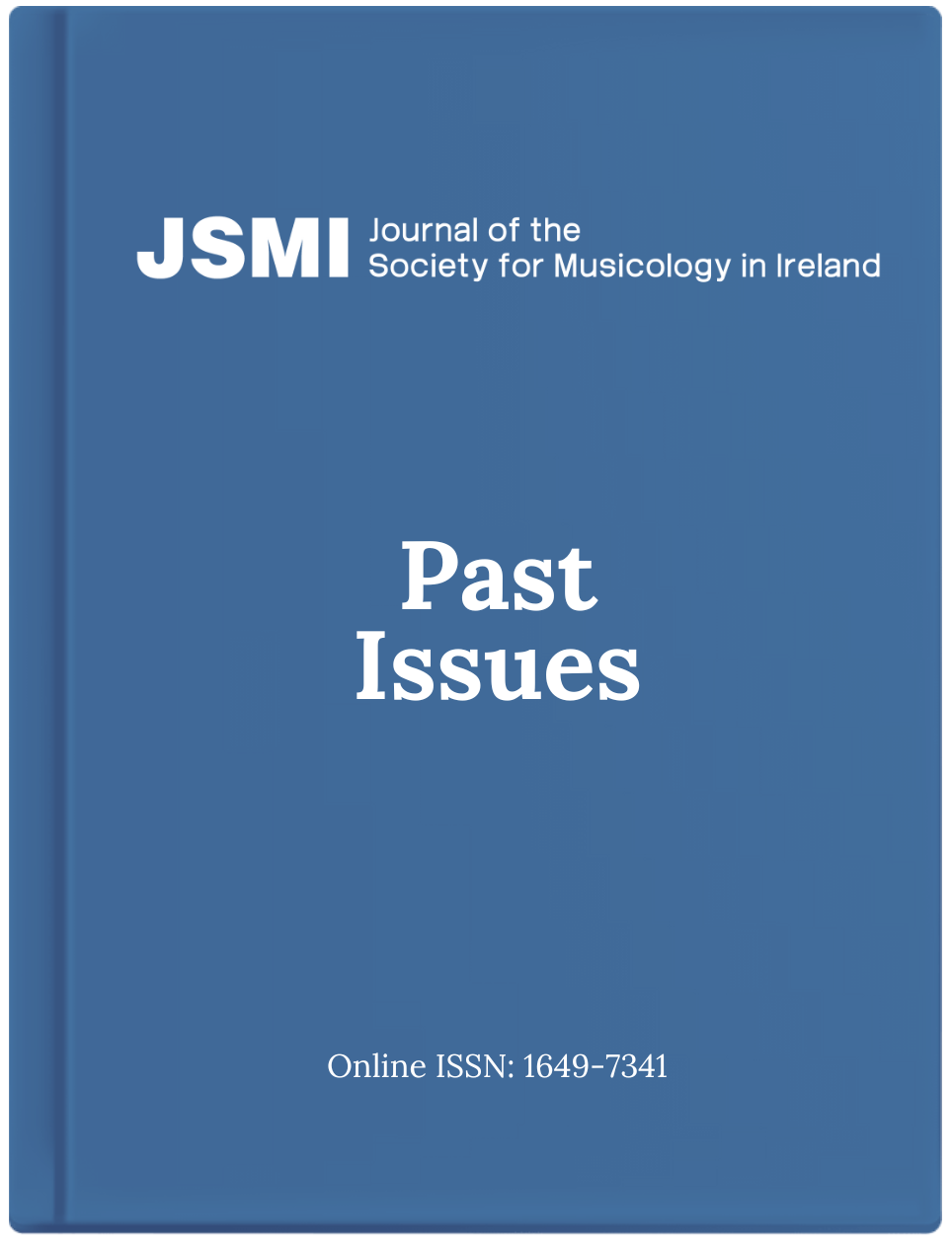The Rules of Engagement: Richard Taruskin and the History of Western Music
DOI:
https://doi.org/10.35561/JSMI02063Keywords:
music history, TaruskinAbstract
The Oxford History of Western Music (2005) is a scrutiny of the ‘literate tradition’ of music in European and North American culture from the beginnings of notation to the end of the twentieth century. Richard Taruskin’s monumental and profoundly erudite engagement with a thousand years of western art music is animated from the outset by a radical critique of German idealism and the influence which this has exerted on the formation and transmission of European and American musical thought. Taruskin takes the view that as a result of this influence, the history of music has been seriously distorted, especially in regard to the contractual intelligibility of musical discourse in relation to society. The prestige of progressivism, as this is manifested in atonal and serial composition, in primitivism and neoclassicism, has enjoyed an excessive pre-eminence which eclipses in turn the narrative clarity of tonal music in the twentieth century.In this review essay, Taruskin’s indictment of historicism as a primary agent in the perpetuation of (German and Anglo-American) musicological orthodoxy is appraised in the context of his own obligations to narrative, musical analysis and the reception history of musical works. Taruskin’s identification of an historicist ‘master-narrative’ in earlier surveys of western music is considered in relation to a new master- narrative, of Taruskin’s own making, which condemns the hegemony of musical idealism at every turn. The tension which arises between this enduring preoccupation and the author’s sustained engagement with individual musical texts tends to confirm the autonomy of the musical work, not as an object immune (or indifferent) to history, but as a nexus of social, ideological and political expression which attains to a self-standing aesthetic integrity.
Downloads
Published
Issue
Section
License
Copyright for articles and reviews published in this journal is retained by the authors, with first publication rights granted to the journal. By virtue of their appearance in this open access journal, articles are free to be used, with proper attribution, in educational and other non-commercial settings.
It is the responsibility of the author to secure (and, if necessary, pay for) written copyright permissions for the reproduction, in this online journal, of any illustrations, images, music notation, audio and video files, or any other copyright materials, that are included in the author's article.



